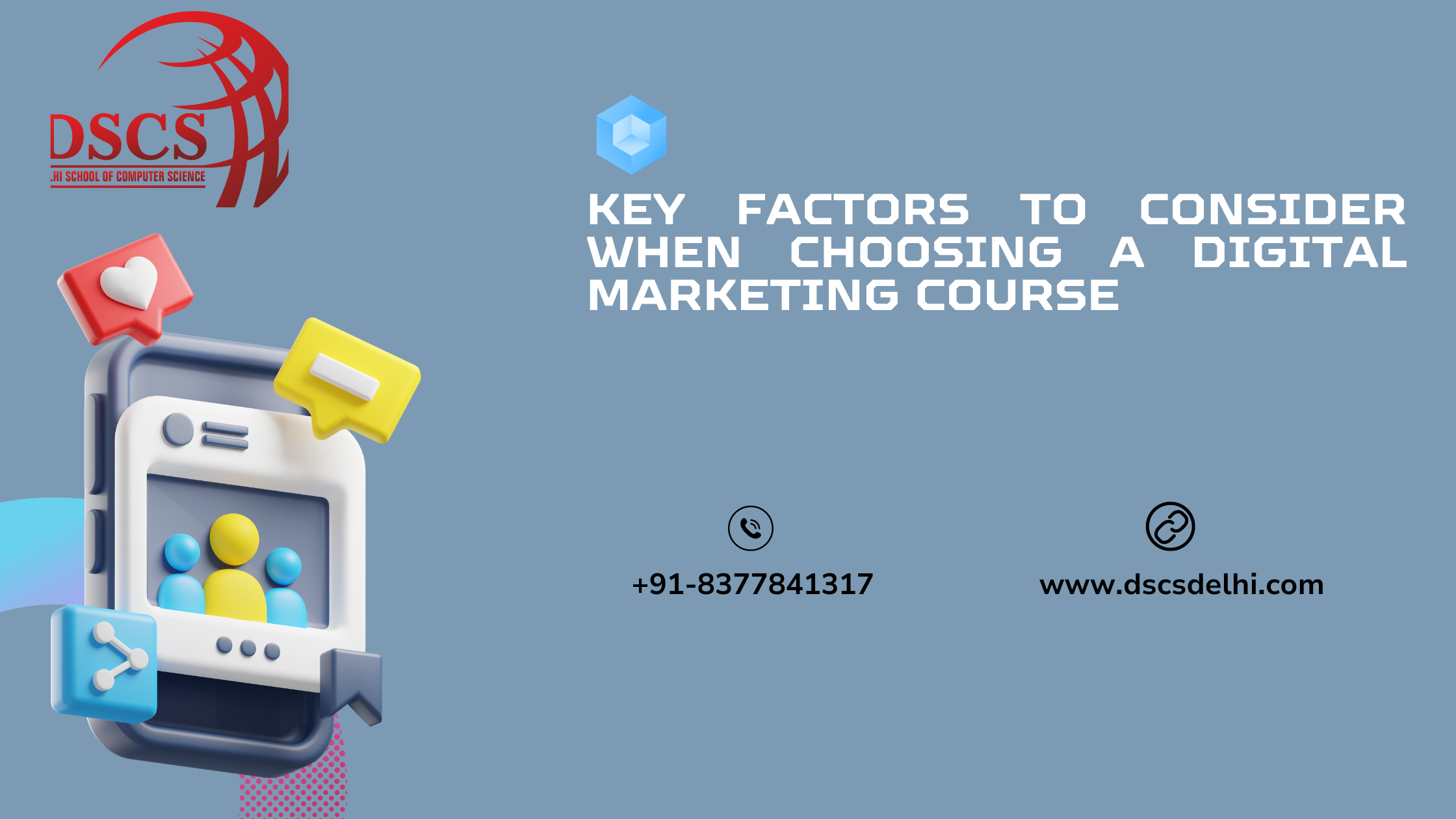
In today’s fast-paced digital landscape, mastering the art of digital marketing is essential for individuals and businesses alike. Whether you’re a marketing professional looking to upgrade your skills or a newcomer eager to dive into the world of online promotion, choosing the right digital marketing course is a crucial first step. With an abundance of options available, it’s essential to consider several key factors to ensure that the course aligns with your goals and provides a comprehensive and relevant learning experience. Here are some key factors to consider when selecting a digital marketing course:
Post-Course Support and Resources:
Choosing the right digital marketing course requires careful consideration of various factors to ensure that the investment of time and resources leads to a meaningful and rewarding learning experience. By thoroughly researching and evaluating these key factors, you can make an informed decision that aligns with your career goals and aspirations in the dynamic field of digital marketing.
Enroll today at DSCS Institute in Laxmi Nagar for an enriching Digital Marketing course. Acquire industry-relevant skills and stay ahead in the dynamic world of online promotion. Join us now!
A-118, 2nd Floor, Metro Pillar No.35, Main Vikas Marg, Opp. Raymond Showroom, Laxmi Nagar, Shakarpur, New Delhi, Delhi 110092
08:00 AM to 08:00 PM
M : +91-8377841317



Don’t miss our future updates! Get Subscribed Today!
©2023 All Rights Reserved.